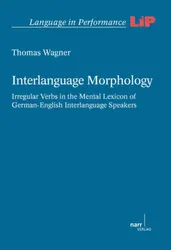Since the middle of the twentieth century it has been widely believed that English words are less integrated into word families than German words. Ernst Leisi attributed this so-called dissociation to the large proportion of Romance words that have entered the originally Germanic English language in the course of its history. Even though fairly common, these hypotheses have not yet been tested empirically. This book thus presents a long-due study which subjects the 2,500 most frequent English and German lemmas to various analyses. For instance, they are analysed into constituents to which they are both formally and semantically related. In addition, morphosemantically related complex words containing the English and German list items are sought for. The approach adopted here, which considers a variety of variables such as formal differences and semantic obstacles, allows for a highly differentiated answer to the question whether the English vocabulary is dissociated or not. The last part of the book discusses the relevance of the study's surprising results with respect to the mental lexicon as well as language learning and teaching.

Consociation and Dissociation : An Empirical Study of Word-Family Integration in English and German
Christina Sanchez
book
The Linguistics of Football
book
Corpus · Culture · Discourse
Tamsin Sanderson
book
Cognate Object Constructions in English : A Cognitive-Linguistic Account
Silke Höche
book
Interlanguage Morphology : Irregular Verbs in the Mental Lexicon of German-English Interlanguage Speakers
Thomas Wagner
book
Levelling and diffusion in the Cumbrian city dialect of Carlisle
Sandra Jansen
book
